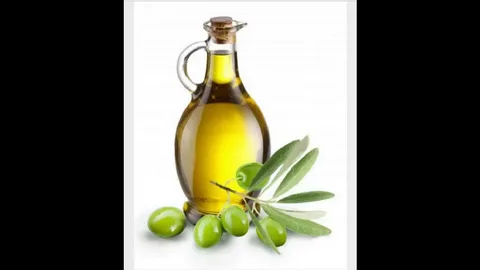-
Ροή Δημοσιεύσεων
- ΑΝΑΚΆΛΥΨΕ
-
Blogs
Olive Oil Market Study Highlights Challenges of Adulteration and Need for Enhanced Transparency Standards

The Olive Oil Market has long been recognized for its health benefits, culinary versatility, and cultural significance. However, the increasing prevalence of adulteration and mislabeling has sparked growing concern among consumers and regulators alike. This has placed pressure on industry players to enhance transparency standards and adopt more rigorous quality control measures to safeguard product integrity and market credibility.
Understanding the Scope of Adulteration in the Olive Oil Market
Adulteration in the olive oil industry typically involves diluting extra virgin olive oil with lower-quality oils such as soybean, sunflower, or pomace oil, and then falsely labeling it as “extra virgin.” In other cases, oils are chemically refined to appear pure, undermining the product’s authenticity and nutritional profile.
These practices not only deceive consumers but also jeopardize the reputation of genuine producers. Adulteration is particularly rampant in markets with less regulatory oversight or where supply chain complexity makes it difficult to trace the oil's origin. As global demand increases, the temptation to cut corners rises, making the problem both widespread and persistent.
Consumer Trust Erodes as Quality Becomes Questionable
For health-conscious and informed consumers, olive oil is often viewed as a premium, functional product. Yet, when reports surface about mislabeled bottles or inconsistent quality, consumer trust is damaged. Many are left wondering if they’re truly receiving the benefits they paid for.
This skepticism has led to an increased demand for verifiable sourcing, independent certifications, and detailed labeling. Shoppers are now more inclined to scrutinize origin, extraction methods, and third-party quality endorsements. Brands that lack this transparency risk being excluded from shopping carts altogether, especially in premium segments.
The Call for Enhanced Transparency and Certification
In response to these challenges, the olive oil industry is seeing a strong push toward traceability and transparency. Certifications such as PDO (Protected Designation of Origin), PGI (Protected Geographical Indication), and organic seals are becoming essential markers of authenticity. Additionally, new blockchain-based tracking systems are emerging to ensure every step of the supply chain is documented and tamper-proof.
Retailers and brands are also investing in QR codes and digital labels that provide consumers with in-depth information about the origin, harvesting methods, and quality control protocols of their olive oil. Such innovations help rebuild trust and allow consumers to make more informed choices.
Stricter Regulatory Oversight in Key Markets
Governments and international food safety authorities have begun tightening regulations to combat adulteration. In regions such as the European Union, North America, and parts of Asia-Pacific, there are increasingly rigorous standards for labeling, purity testing, and import checks.
For instance, in the U.S., the FDA and USDA are working more closely with industry stakeholders to develop voluntary standards and enforce truthful labeling. In the EU, the International Olive Council (IOC) sets testing benchmarks for acidity, peroxide value, and sensory characteristics to ensure consistent quality.
These regulations serve as both a deterrent and a framework for producers who wish to differentiate themselves through compliance and excellence.
The Role of Testing and Laboratory Authentication
Laboratory testing plays a critical role in detecting adulteration. Techniques such as gas chromatography, infrared spectroscopy, and DNA testing are employed to verify the composition and botanical origin of olive oil. These tools are essential in ensuring that what is labeled as “extra virgin” actually meets those standards.
However, not all producers invest in comprehensive testing due to cost or lack of enforcement. Moving forward, establishing mandatory testing protocols and funding more accessible lab infrastructure will be key to leveling the playing field and protecting consumer interests.
Opportunities for Ethical Brands and Transparent Producers
While adulteration poses a threat to market integrity, it also presents an opportunity for ethical brands to shine. Producers that emphasize transparency, quality, and sustainability can stand out and command premium pricing.
Transparent supply chains, cooperative farming models, and clean-label marketing resonate strongly with today’s wellness-oriented and ethically minded consumers. Brands that go the extra mile in demonstrating authenticity—whether through independent audits, blockchain verification, or fair-trade certifications—are likely to gain customer loyalty and global market share.
Educating Consumers to Make Informed Choices
Consumer education is an essential part of addressing the problem. Many shoppers still do not understand what “extra virgin” truly means or how to evaluate olive oil quality. Campaigns that explain factors like acidity levels, color misconceptions, and how to spot quality seals can empower buyers and reduce the influence of deceptive marketing.
Workshops, retailer guides, and educational content on brand websites can play a pivotal role in guiding consumers toward reputable products. Informed consumers are less likely to fall prey to counterfeit or substandard oils.
Collaborative Industry Action for Long-Term Change
Solving the adulteration issue will require collective action. Producers, regulators, retailers, and certification bodies must work in tandem to create unified standards, promote transparency, and penalize fraudulent practices.
Establishing global olive oil quality benchmarks and investing in collaborative transparency platforms will drive long-term improvements in market integrity. In this environment, ethical players will thrive while unscrupulous actors are phased out.
Conclusion: Toward a Cleaner, More Trustworthy Olive Oil Market
The challenge of adulteration is not insurmountable. By prioritizing transparency, embracing technology, and aligning with evolving consumer values, the Olive Oil Market can rebuild and sustain trust. Producers who commit to ethical sourcing, rigorous testing, and clear communication will be at the forefront of this transformation.
Ultimately, a more transparent and accountable industry benefits everyone—from farmers and retailers to the end consumer. As quality becomes the new currency in olive oil, the future favors brands that lead with integrity.






